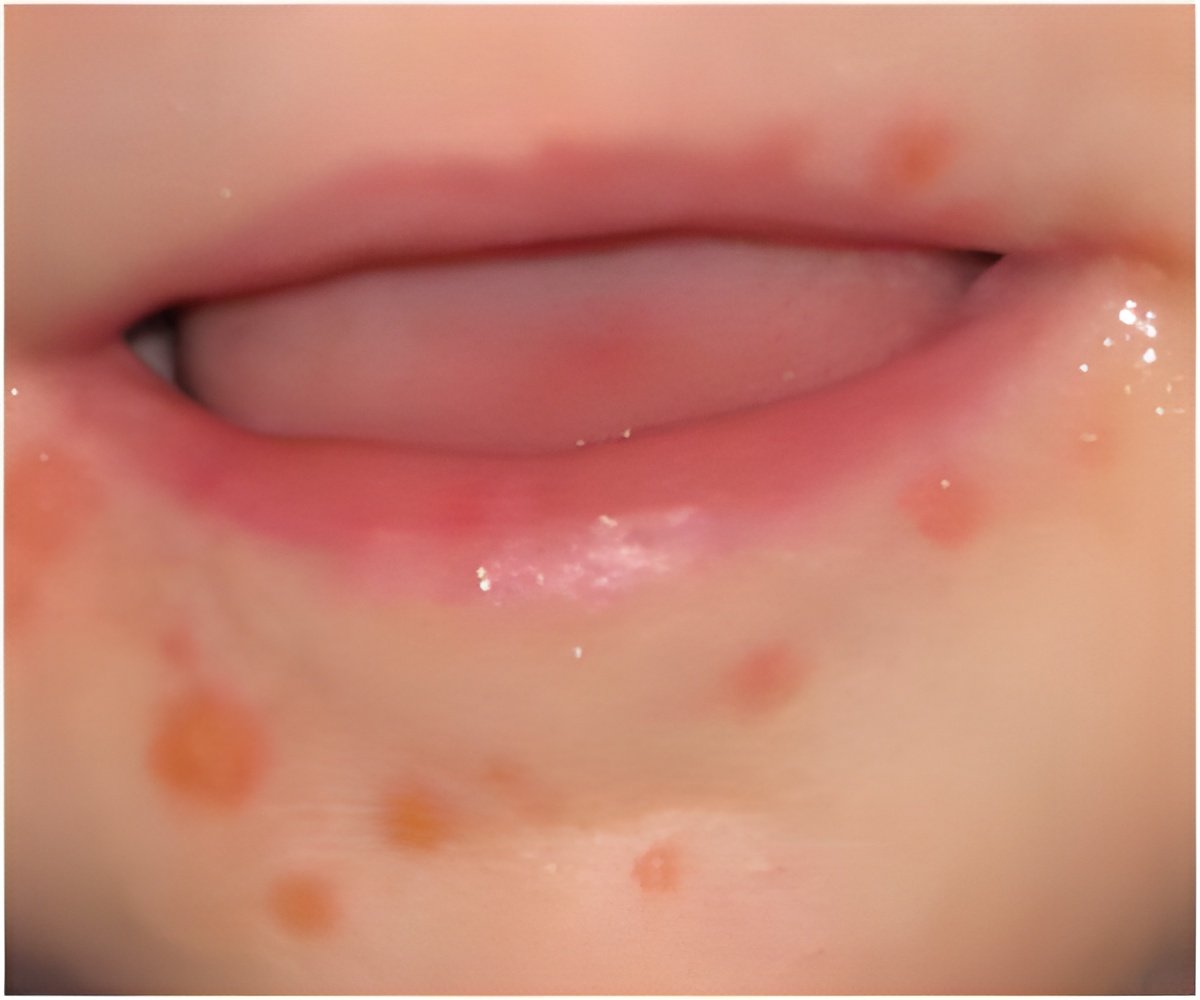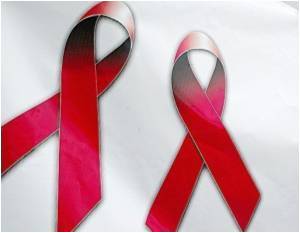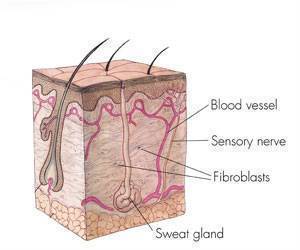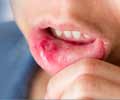
HSL outbreaks, or cold sores, are skin infections that appear with the reactivation of herpes simplex virus, a virus that infects 70 percent of the U.S. population. Cold sore outbreaks vary in frequency and severity; some people may experience symptoms rarely, only once every 5 to 10 years, while others may experience them once a month or even more frequently. In addition to investigating environmental activating factors (e.g., sunlight) that may play a role in outbreaks, researchers for some time have been looking at the possible role of genetic factors in virus susceptibility and activation.
This study, led by John D. Kriesel, MD, and colleagues from the University of Utah School of Medicine in Salt Lake City and the University of Massachusetts Medical School in Worcester, follows previous studies identifying a region of chromosome 21 as a base for genes possibly linked to cold sore outbreaks. To identify which of six possible genes in this region were associated with the frequency of outbreaks, this latest study used single nucleotide polymorphism genotyping in genome-wide, family-based linkage studies of 618 people from 43 large families. The investigators found a positive link between the frequency of outbreaks, hereditability, and the presence of a specific gene, C21orf91, on chromosome 21.
"While these findings await confirmation in a larger, unrelated population," the study authors note, "these findings could have important implications for the development of new drugs that affect determinants of the cold sore phenotype."
In an accompanying editorial, Anthony L. Cunningham, MD, and David Booth, MD, of the Centre for Virus Research and the Institute of Immunology and Allergy Research at Westmead Millennium Institute and the University of Sydney in Australia, note that if the findings regarding the C21orf91 gene are confirmed, additional research may then begin to determine possible therapeutic applications and whether the same gene also plays a role in recurring genital herpes.
Source-Eurekalert














